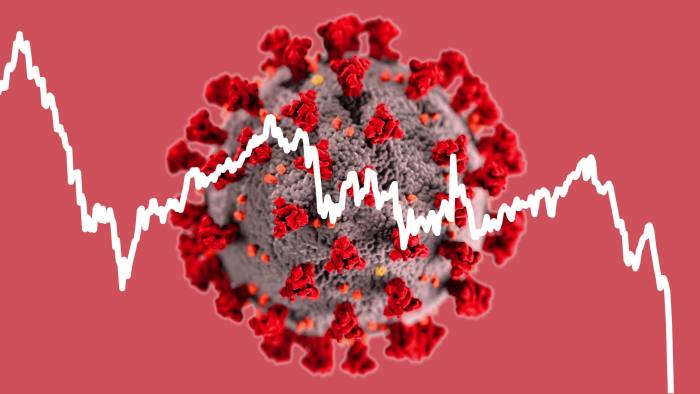Shortly before sunrise Renault employees filed past thermal cameras into a brightly lit factory that had barely produced a car for weeks.
The reopening last week of the French manufacturer’s Flins factory, located about 40km north-west of Paris, brought with it a mix of anxiety, relief and plenty of unanswerable questions for its 2,750-strong workforce.
“The way we have to work now, it’s really difficult,” said Patrick Gourdeau, who monitors the robots that paint the cars and has worked at Flins since 1980. “It’s a bit miserable but we’ll get used to it,” he says, smiling ruefully through his mask and pointing at his fogged-up glasses.
The 59-year-old is referring to the measures that Renault has put in place to make the factory safe for staff who have seen the coronavirus pandemic plunge the car industry into its worst crisis in decades. Sales collapsed 80 per cent across western Europe in April, with barely a car being bought in the UK, Spain and Italy.
At Flins, Renault has spent €800,000 on measures including masks that are handed out every four hours, gel and temperature controls. Staff have also been trained on protocols that are becoming commonplace for workplaces as governments try to pull economies out of deep freeze.
The new normal also looks different at Flins: lawn benches are cordoned off; lunch tables are divided by protective glass; social distancing markers run along the floor between hand washing stations and everyone is in masks and gloves.
As with every employer, the potential success of Renault’s gradual reopening is dependent on staff feeling safe. As they turned up last Wednesday, the gamut of emotions ran from nervous to near jubilant.
“It’s a bit more tense. People are scared,” said Sabrina Mahamady, who helps on quality control along the production line. But “we have to get used to this”.
Anne-Laure Dupont laughed on her way in, saying “I’ve been locked up at home alone for two months, I’m delighted to get back to work.”
Not everyone is back. Only half of Flin’s workforce has returned and the factory is producing less than half the 750 cars a week it did before the virus.
“Even if we keep pushing up the rhythm of production, we won’t get back to full capacity without a vaccine,” said Jean-Luc Marbire, who runs Flins.
It is a view that has been echoed by companies from Volkswagen to BMW, who alongside the challenge of reassuring staff, face the challenge of persuading shell-shocked consumers to make a big-ticket purchase such as a car.
Indeed, Jose Vincent de Los Mosoz, the global head of manufacturing at Renault who was at Flins for its reopening, says the safety measures that the company has installed in its factories will add between €11 and €40 to the cost of car.
But he insists that even a partial reopening of the factory, which dates back to 1952, is a milestone.
The company, which counts the French state as its largest shareholder, chose to close its factories in March as the virus spread across the country and demand for its cars evaporated.
“We are not running at high speed, but that’s OK,” said Mr de Los Mosoz. “The more important thing at times like this is that people think it’s OK to come back and work in a car factory.”
Manufacturing volumes at its 12 French factories, which together employ about 18,000 people, are running at about a quarter of pre-Covid-19 levels.
Not all of its efforts to restart production have gone smoothly. Labour union CGT last week forced Renault to suspend work at its Sandouville plant near Le Havre in the north of the country after bringing a legal case claiming it had not been properly consulted on the reopening.
Flins is just one of dozens of car plants turning the lights back on across Europe, including Volkswagen’s flagship facility in Wolfsberg, Fiat Chrysler’s Italian factories Italy and luxury carmaker Bentley’s UK site in Crewe.
“It will be challenging for people in the first couple of days because of the shock of leaving the protective cocoon they’ve been in,” said Adrian Hallmark, the chairman of Bentley, as staff began working last week.
Those staff returning to Flins for the first time since March found that the working day reshaped in other ways. With the canteen a casualty of social distancing rules, hot meals have been replaced by sandwiches. While the number of buses available to ferry more people to the factory has doubled to cut crowding during the commute.
Coronavirus business update

How is coronavirus taking its toll on markets, business, and our everyday lives and workplaces? Stay briefed with our coronavirus newsletter.
But that hasn’t stopped more people choosing to drive to work, said Eric Contoux, of labour union Force Ouvrière, leading to 45-minute traffic jams to get out of the factory’s car park.
If the slow reopening of factories is an essential part of Renault’s plan to navigate the pandemic, the group is also pulling every lever to cuts costs at a company whose sales were falling before the pandemic erupted. A strategy to be announced later this month is expected to include €2bn of savings.
The grave challenge facing Renault was not far from the thoughts of many as they returned.
“Some people are very happy to get back to work,” said Abdullah Diop, a 42-year-old team leader at Flins. “Others feel they have to come in; it’s fear, it’s the fear of unemployment.”




